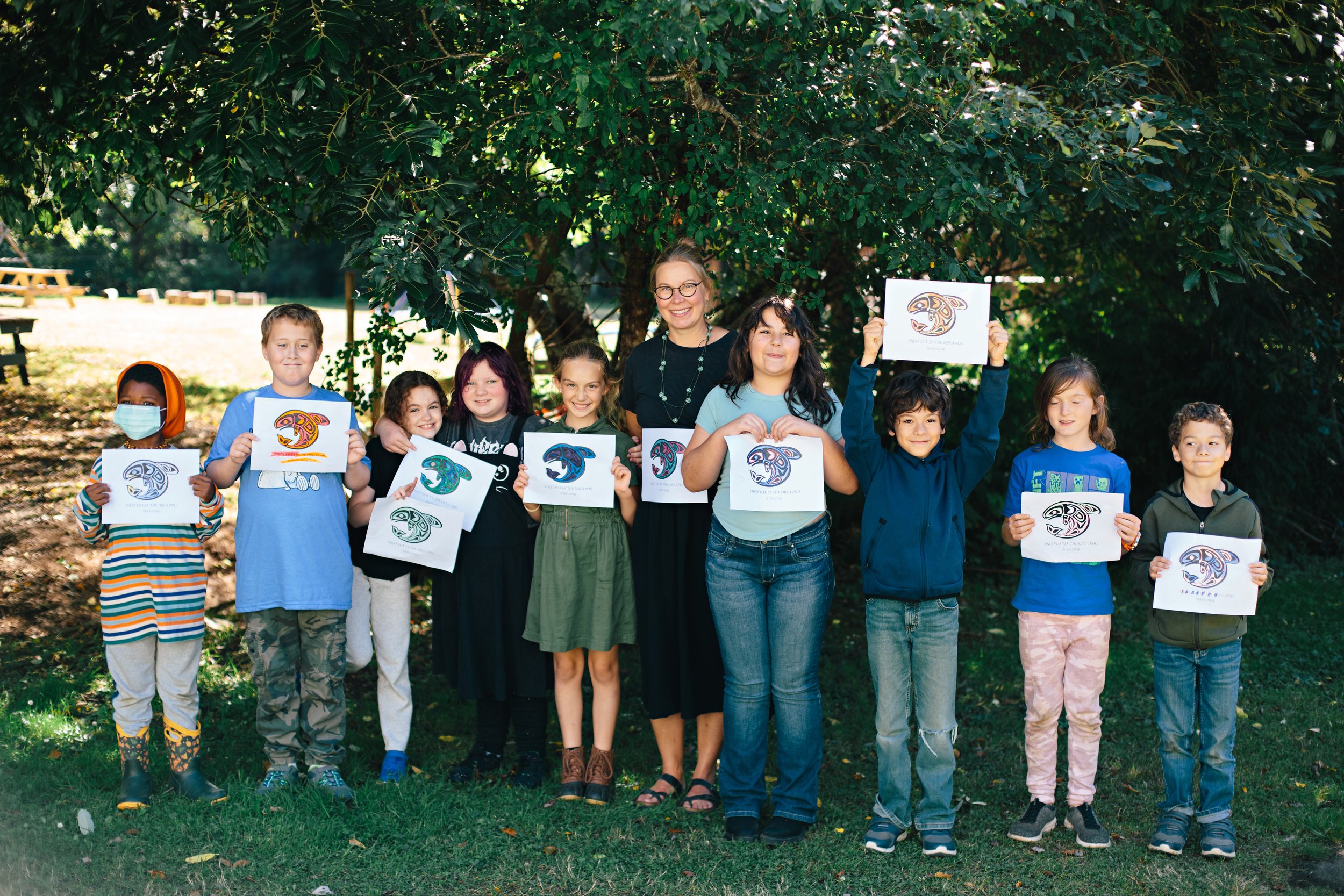
Curriculum Overview
Language Arts
The goal of the NVS Language Arts curriculum is to develop competent, curious, lifelong readers and effective written communicators.
Being a proficient reader has a significant impact on a student’s entire education. NVS teachers understand that reading instruction is both an art and a science; in addition to their experience with children and professional perspective, they use the most current scientific reading research to make instructional decisions to serve the needs of their students in the areas that help them most—phonemic awareness, phonics, vocabulary, fluency and comprehension. Students increase their decoding and comprehension skills within a meaningful, diverse literacy program that includes read-alouds, guided reading, shared reading, independent reading, and word study.
Regardless of reading ability or level, students at all grade levels are encouraged to think critically about the text—to infer, analyze, synthesize, compare & contrast, evaluate and make predictions & connections as they actively engage in group reading activities & discussions.
Beginning in Kindergarten, NVS students are introduced to Writers’ Workshop, an instructional practice used across the grades that is designed to help students become confident writers. Writer’s Workshop provides the space for writing to be taught like any other skill with explicit instruction that includes spelling and conventions, as well as the qualities of good writing such as word choice, fluency and voice. Students use their writing skills in all areas of the curriculum to increase depth of knowledge and develop independent & critical thinking skills.
Math
K-8 teachers at NVS use Illustrative, a highly rated problem-based curriculum for Math instruction.
In a problem-based curriculum, students spend most of their time in class working on carefully curated and sequenced problems. Teachers help students understand the problems, ask questions to support their thinking, and orchestrate discussions to be sure that the mathematical takeaways are clear. Students frequently collaborate with their classmates—they talk about math, listen to each other’s ideas, and justify their thinking. They gain experience communicating their ideas both verbally and in writing, developing skills that will serve them well throughout their lives.
Science
The Next Generation Science Standards (NGSS) are a new set of K–12 science standards that were developed by science educators across the country. The NGSS identify scientific and engineering practices, crosscutting concepts, and disciplinary core ideas in science that all K–12 students should master in order to prepare for success in college and 21st-century careers. NVS Teachers use these standards to help students develop an in-depth understanding of the nature of science and develop key skills—communication, collaboration, inquiry, problem solving, and flexibility to study how the natural and human worlds interact.
At NVS we believe the historical practices and entrenched cultural perceptions of science education need to be challenged so that all students can excel in science. We strive to provide students with exciting and equitable learning experiences by allowing our teachers to use their expertise and creativity in their science instruction. Together, along with the greater science community, NVS teachers and students can solve important problems in our classrooms.
Social Studies
Social studies helps explain the world in which we live. Much like science teaches us to observe the physical aspects of life, social studies encourages us to open our minds to the many ways and places humans live on our planet. Social Studies at NVS gives students the opportunity to learn about their place in history, investigate important issues in the world and explore the rights and responsibilities of citizenship.
At all grade levels NVS teachers integrate four concepts: community, changemakers, current events and service into social studies instruction. This school wide focus gives teachers the platform/opportunity to develop a shared academic vocabulary and plan mixed age group learning experiences.
Arts
In addition to art taught within their classrooms, all NVS students participate in Art Literacy and Theater. Our Art Literacy program gives students the opportunity to learn about the life & works of twelve notable artists each year and also explore & create original pieces of painting, drawing and sculpture. The entire NVS community looks forward to the Spring Art Show where student work from the year is proudly displayed. During weekly theater classes, our students act in short plays; design costumes, masks, scenery and props; learn about lighting and sound; perform puppetry; and even dabble in some original play writing. Theater Club is one of our popular rotating after school programs.





